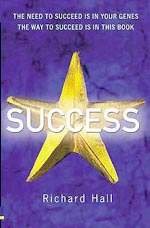Everyone wants to be successful. But how would you define success?
The American Heritage Dictionary defines success as "the achievement of something desired, planned, or attempted." That something can be anything -- such as financial rewards, the balance of family and work obligations, or the search to fulfill a personal passion.
However, for many entrepreneurs success may not necessarily be the arrival to a destination. It could be the path of the journey taken along the way. Perhaps it's the ability to be flexible. It could also mean the fortitude to change course or direction. Maybe success is being a risk taker when others would walk away from an opportunity.
Your idea of success may be quite different from that of another small business owner's. Your neighbor's personal and professional goals may not parallel your own. Even within families, spouses, parents, and siblings have different needs at different times.
You may also find that how you define success today may be different from how you define it tomorrow. In the real world, life changes, businesses evolve, and the shooting "success star" you may be reaching for alters its course.
As a single person with no family obligations, your definition of success may be quite self-centered. You may be financially driven. The personal challenge of running a business may be your ultimate reward.
A married small business owner with a family may have the intention to make a substantial living, but his or her personal definition of success may revolve around the family. Finding a happy balance between all aspects of life is often the driving force.
Before you outline what would make your business a success, take a moment to think about your own definition of success -- both personal and professional. Remember, you are on a journey. Your success may be found in that journey. Success is not simply an end point; once you reach one goal or benchmark, there will be others to pursue.
Do your personal and professional goals parallel each other? If not, the two paths may diverge and leave you stranded in the middle, attaining neither set of goals.
Do your family goals reflect those of your spouse or significant other? Again, if these two sets of success-defining goals are not in sync, trouble may be brewing in and outside the business.
Sometimes along the way, we deviate from what we think is the right path to success. When this occurs, think of those individuals who came before you.
Consider Milton S. Hershey. Was his success in building the largest chocolate factory in the world? Or was it in leaving a legacy through his philanthropic contributions to disadvantaged children and the creation of the Milton S. Hershey School?
What other entrepreneurs inspire you? Who can you emulate? Take time to research successful entrepreneurs and learn the story behind their entrepreneurial efforts. Their stories may surprise you.
You are surrounded by entrepreneurial colleagues. Tap into them. Join your local chamber of commerce. Attend social events with other business owners. Through sharing successes and failures, entrepreneurs grow together in a supportive network.
Thomas Edison once said, "I have not failed. I have just found 10,000 ways that won't work." You and your colleagues may find your own 10,000 ways. Expect to find them. Plan now to learn from them.
Success is to be measured not so much by the position that one has reached in life as by the obstacles which he has had to overcome while trying to succeed.
What are your personal and professional obstacles? How successful will you be?
Only you can answer this.
Subscribe to:
Post Comments (Atom)










































































































No comments:
Post a Comment